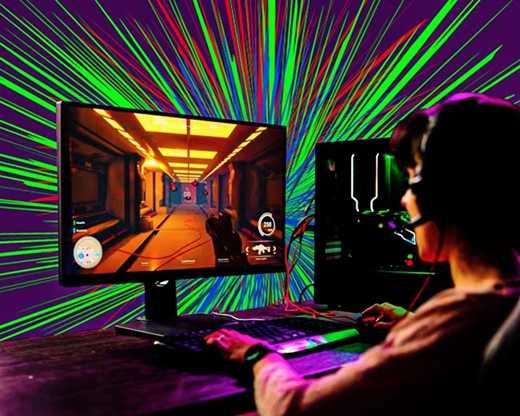Gaming Revolution And How The New Trends Are Shaping Tomorrow’s Games
Emerging technology and shifting player expectations are causing a major shift in the gaming market. These developments—from the emergence of virtual reality to the incorporation of blockchain—are changing not just how games are created and marketed, but also how they are played. With previously unheard-of levels of player interaction and personalisation, immersive experiences and interactive storytelling will take centre stage in the gaming industry as a result of this transition.

The Rise of Popularity of Gaming
Over the last ten years, the gaming business has grown exponentially, capturing the attention of people all over the world with its vast range of platforms and genres. Technology developments, more internet connectivity, and the rising acceptance of gaming as a popular kind of entertainment are the key drivers of this boom.
The gaming community has seen the rise of speciality industries as a result of the industry’s expansion into new markets as it changes. Among them, Indian Rupees Casinos have become rather well-known for providing specialised gaming experiences that are especially suited to the tastes of Indian gamers.
Latest Gaming Technology Trends
Cloud Gaming
By allowing us to stream games straight from the cloud, cloud gaming technology is completely changing how we access and play video games. This means that pricey gear is no longer necessary.
Thanks to this technology, players can enjoy top-notch games on almost any device that has an internet connection, including low-end PCs, tablets, and smartphones. It also makes for smooth gaming by enabling immediate gameplay without the need for time-consuming downloads or upgrades. Cloud computing promises to democratise gaming by becoming more widely available to a global audience as it develops.
Virtual Reality (VR) and Augmented Reality (AR)
The frontiers of immersive gaming are being pushed by virtual reality (VR) and augmented reality (AR), which offer users very immersive and interactive experiences. Whereas AR improves the actual world by superimposing digital information on top of it, VR immerses users in fully realised virtual environments.
In addition to promoting a more participatory and social gaming environment, these technologies are being leveraged to craft more intricate and emotionally engaging storylines. VR and AR are expected to significantly alter the gaming scene as technology becomes more accessible and software grows more creative.
AI and Machine Learning in Game
The advancement of game complexity and realism is largely dependent on Artificial Intelligence (AI) and Machine Learning. AI is utilised to provide intelligent and responsive behaviour in non-player characters (NPCs), giving them a more realistic and unexpected appearance.
Machine learning algorithms have the ability to provide individualised gaming experiences or dynamically modify game complexity based on user behaviour. AI also plays a key role in automating game creation and testing, which improves the overall quality of the finished product and the productivity of the manufacturing process.
Mobile Gaming
Since smartphones are so widely available and mobile technology is becoming better, one of the gaming industry’s fastest-growing segments is still mobile gaming. Mobile games appeal to a wide variety of players, including individuals who would not typically consider themselves gamers, because they are convenient to play anytime, anywhere.
Mobile gaming has been greatly improved by innovations like multi-touch controllers, augmented reality, and social networking connections. The creation of mobile-specific games and the mobileization of well-known console and PC games are two further factors driving this industry’s expansion.
ESports
Competitive gaming, or eSports, has quickly grown from small-scale events to a worldwide sensation that is attracting millions of followers and changing the competitive entertainment scene. A new era of professional sports has been created by these organised multiplayer video game contests, where players compete for dominance in titles ranging from sports and fighting games to real-time strategy and first-person shooters. With its own superstars, committed teams, and expanding fan base, eSports has attracted significant expenditures that have resulted in bigger prize pools and more advanced competitions held in expansive facilities.
This boom has not only spawned new job prospects but also a growing game development, broadcasting, and merchandising business. eSports’ growing popularity defies conventional ideas about sports and entertainment, underscoring its potential to overtake traditional sports as the most popular spectator sports in the years to come.










